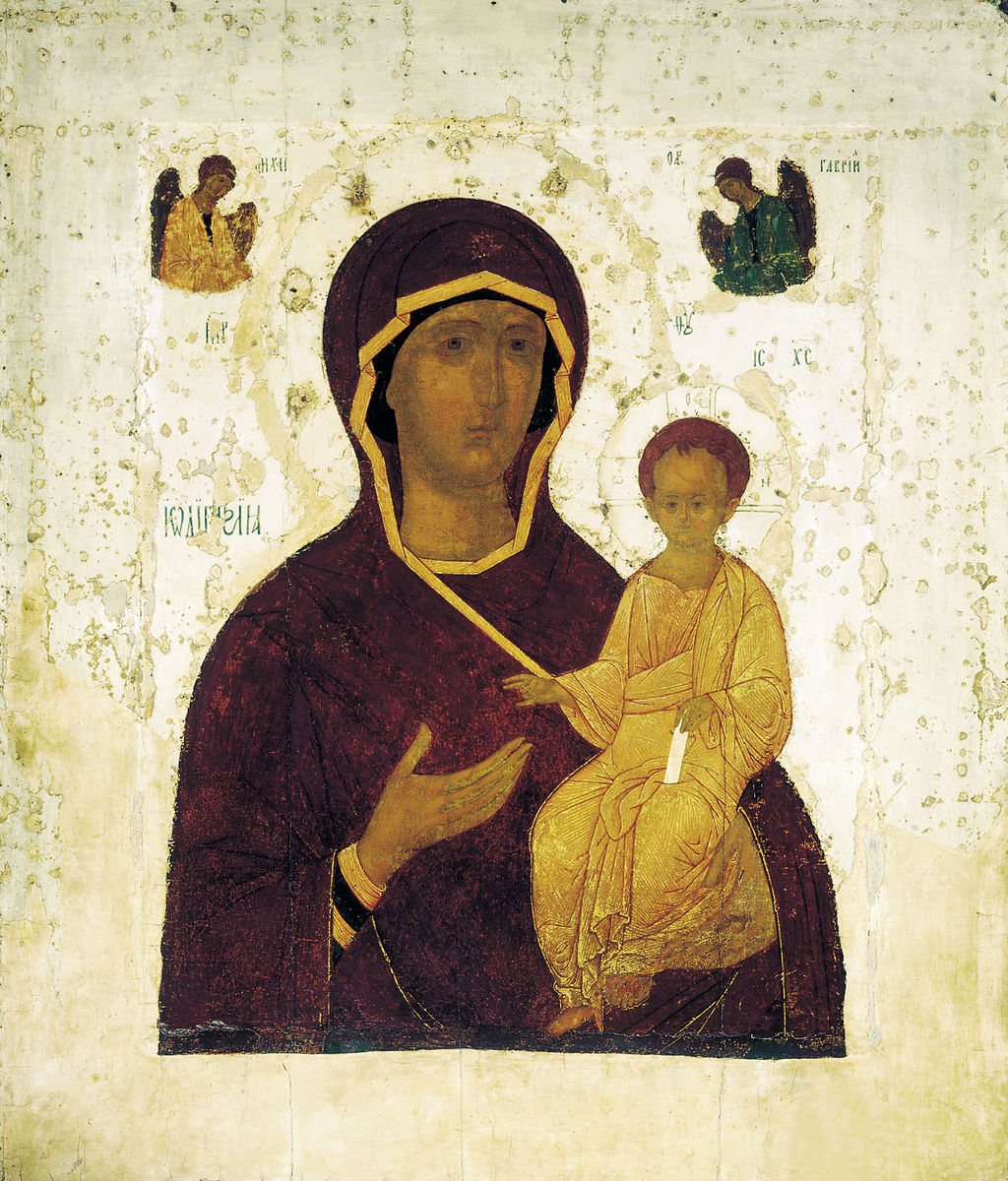“Today the living ladder, through whom the Most High descended and was seen on earth, and conversed with men, was assumed into heaven by death. Today the heavenly table, she, who contained the bread of life, the fire of the Godhead, without knowing man, was assumed from earth to heaven, and the gates of heaven opened wide to receive the gate of God from the East. Today the living city of God is transferred from the earthly to the heavenly Jerusalem, and she, who, conceived her first-born and only Son, the first-born of all creation, the only begotten of the Father, rests in the Church of the first-born: the true and living Ark of the Lord is taken to the peace of her Son.”
St John of Damascus: Third homily on the Dormition of the Mother of God

Dear brothers and sisters,
Festal greetings on our joyous and radiant Summer Pascha, the feast of the Dormition of the Most Holy Mother of God.
This feast is the consummation of the life of the Mother of God, whose events are renewed and transfigured in her Dormition and Assumption into heaven.
Having received the good-tidings of the Incarnation through the message of the Archangel, the Mother of God received the new good-tidings of her own imminent birth into the eternal life of the Heavenly Kingdom.
Her distant earthly nativity was crowned by her nativity into eternal life, and in the icon of the feast, we see her all-pure soul borne into the heavens in the hands of her own Divine Child in the symbolic likeness of a new-born babe wrapped in swaddling clothes.
In her Dormition, the presentation and entrance of the three year-old Mother of God into the temple and her entrance into the holy of holies in Jerusalem was superseded and crowned as she entered beyond the veil, not into the earthly ‘haikal’, but into the heavenly sanctuary of her Son, our Great High Priest.
Whilst her parents Joachim and Anna rejoiced at her childhood entrance into the temple, the whole heavenly host, and the ranks prophets and other Old Testament saints, raised in the Saviour’s harrowing of hell – and including her own parents – rejoice, as her pure soul is borne into the heavenly courts by her Son, to be followed by the translation of her incorrupt body.
Having given birth to the Saviour in the cave, where He was wrapped in swaddling bands and laid in the manger, and having seen Him once more laid in a cave wrapped in the linen swaddling bands of burial, she herself was laid within a cave, shrouded in the linen wrappings of the dead. But, like the cave of Bethlehem and the Arimathean’s rock-hewn tomb, so also, her sepulchral cave in Gethsemane became a place of new life, as she was translated from death to life.
And, in this passage from earthly life through death to eternal, heavenly life, the Mother of God enters into the promise of the resurrection, to be glorified and transfigured as she is set at the right hand of her Son, as our intercessor and mediator, the Queen of Heaven – who not only shows us the way, but desires that all of her children should partake in the blessings of eternal life, and be co-sharers in the eternal glory of her Son.
In the glorification and transfiguration of the risen and ascended Mother of God, raised to the right hand of her Son, all of creation reaches its zenith and apotheosis, with the daughter not only of Joachim and Anna, but also of Adam and Eve, foretokening God’s desire for the whole human-race to be raised up and transfigured, to share in the Eighth Day – the Age to Come, when there will be a new heaven and a new earth, and Christ will reign in peace and glory.
The Mother of God, in her obedience and sinlessness, was born into this heavenly glory without death-pangs, with neither suffering, distress nor pain, just as her own bearing Christ in Bethlehem was without birth-pangs and pain.
Despite its harshness, pains and trials, the life she led between her own earthly nativity and nativity into heaven, was one in which she remained sinless and stainless through her freewill, striving for holiness and rejecting evil, even whilst suffering and seeing so much that tested her.
In her, the seeds of the passions found no ground, as she preserved her holiness; in her life of prayer from her tenderest childhood years, temptation was rebutted and rejected; but, despite the grace of God that overshadowed her, we need to remind ourselves that the Mother of God was not exempted from the tests and trials of humanity.
She was not set in some sort of protective spiritual-bubble that magically preserved her from temptation and sin. How could she be one of us and gift Christ our humanity if that was the case? No. The life of the Mother of God was one of prayer, podvig/askesis: the struggle for holiness, and he conscious rejection of temptation and sin, with the core of this remarkable life at the side of her Son – her own personal Way, Truth and Life.
At the marriage in Cana, before the turning of water into wine, the Mother of God instructed the attendants at the feast to listen to the Lord, and to do whatever He told them. This was clearly the guiding principal in her own life, stamped with the openness of the obedience of her response to Archangel at that first Annunciation: “Behold the handmaid of the Lord; be it unto me according to thy word.”
If we can but emulate her in these respects, by listening to the Lord and doing what He has told us to do, and how we should live in the Holy Gospels, and if we can say “Here I am, your servant, may your will be done and accomplished in me”, then we have at least started on our journey to our spiritual Gethsemane, where the Mother of God made herself ready for her death and her passing from the world.
She, no doubt, looked forward to the future and passing from this world, to be reunited with her Child, positively focussing her life and orienting it to that moment of reunion and meeting.
This degree of anticipation and preparation possessed the apostles, who saw not only the Lord’s Ascension, but how he received His mother’s all-pure soul and witnessed that she had physically risen from her tomb, and we encounter it in the lives and sufferings of the holy martyrs, ever ready to meet their Lord.
But what of us, living as though tomorrow will always come, as though there will always be time for what we need to do in the future? How deluded and foolish we are.
As we hear in Great Lent, “Arise my soul. Why art thou sleeping?” Like the foolish virgins, we are lazy, lax and inattentive, neither ready nor prepared, but in a spiritual coma.
The reality is that our passing from this world into life beyond the grave could be at any moment, yet we fail to make ready.
Each of us will have our own dormition, but unlike the Mother of God and some chosen among the saints, we will not have an angel to forewarn us and tell us to prepare, and even if we did, how would we possibly make ready for our leaving the world and facing the journey ahead?
What could we do in a few days, or even hours?
We will, God willing leave the world fortified by the Holy Mysteries – having confessed, received Holy Unction, and communion of the Holy and Life-Giving Mysteries of the Saviour’s Body and Blood – but, we will leave the world with the burden of the wrong actions, inactions and omissions, wrong decisions and rebelliousness of our lives weighing us down. There were no toll-houses where the angels examined the spotless soul of the Mother of God, but there will be for us.
So, whatever we have done so far in life, however ill-advised, however foolish, sinful and rebellious, let us wake up, turn life around and heed the hopeful, beautiful and joyful calling of this feast, to purposely, positively and actively look to the future and what the All-Merciful and All-Loving God wills for us, wishes for us and desires for us: to be translated from earthly life to heavenly life in the wake of the Mother of God
For us, as children of the resurrection, baptised into the Saviour’s Life-Giving third-day Resurrection from the dead (already enjoyed by the Mother of God, three days bodily in her sepulchre) the festal words of st John of Damascus should ring true:
“O wonder surpassing nature and creating wonder! Death, which of, old was feared and hated, is a matter of praise and blessing. Of old, it was the harbinger of grief, dejection, tears, and sadness, and now it is shown forth as the cause of joy and rejoicing.”
… but though death in Christ should be a reason for praise and blessing, and a cause of joy and rejoicing, this can only be true if we LIVE in Christ, each hour, each day, each week, month and year.
In this challenge, the Saviour has given us His Mother, as our intercessor, mediatrix, refuge, comforter and protector – and we gratefully turn to her as the Joy of All Who Sorrow, the Consolation in Afflictions, the Seeker of the Lost, the Rescuer of the Perishing, and the Surety of Sinners.
Being the Hodegetria, she shows us the way, so let us follow her life, her example, her obedience, her submission to the Lord, her struggle for holiness, and the way in which Christ was the whole meaning, purpose and focus of a God-centred, heavenward earthly sojourn, before her pilgrimage took her from Gethsemane to the right hand of the Lord of Glory.
Imitating the Mother of God, following in her footsteps is our sure way to at least be touched by her shadow, to receive the smallest crumbs of grace, and to know that we are heading in the right direction.
Just as Gethsemane was the place of her making ready to meet the Saviour, strengthened by her prayers, inspired by her holiness, given direction by her example, and following in her footsteps, let each of us make our own place of sojourn – whether South or West Wales, Wiltshire, Gloucestershire or Somerset… wherever – a spiritual Gethsemane, where we prepare for the end of our earthly days, in the hope of the future heavenly life, to which the Mother of God has already passed and arrived in great glory and majesty.
Happy feast!
In Christ – Hieromonk Mark
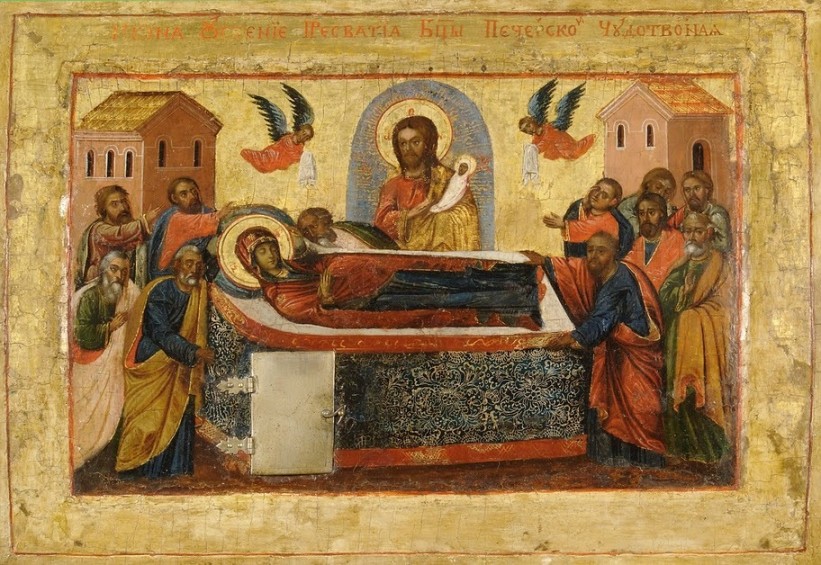


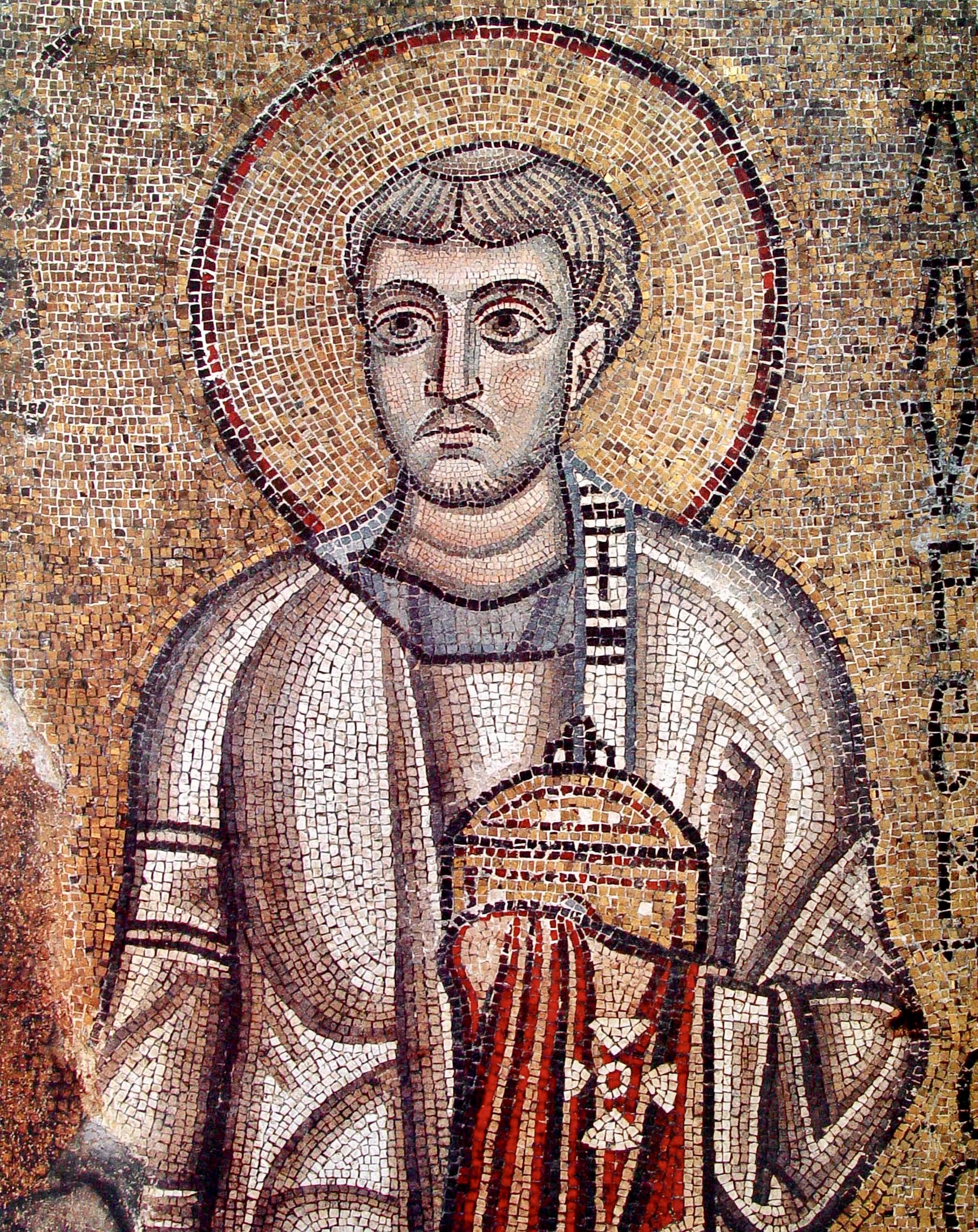
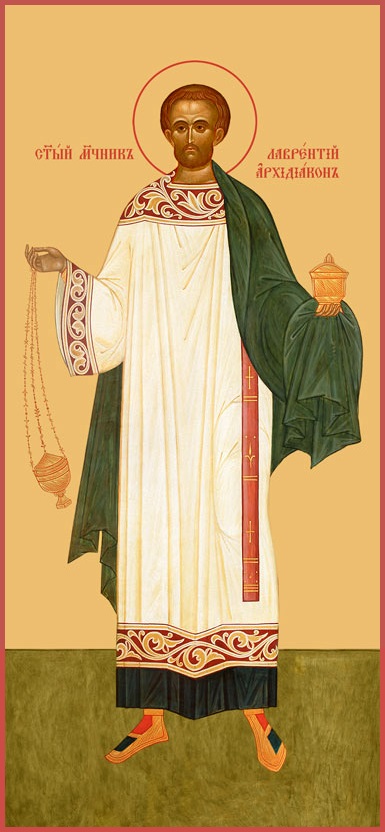
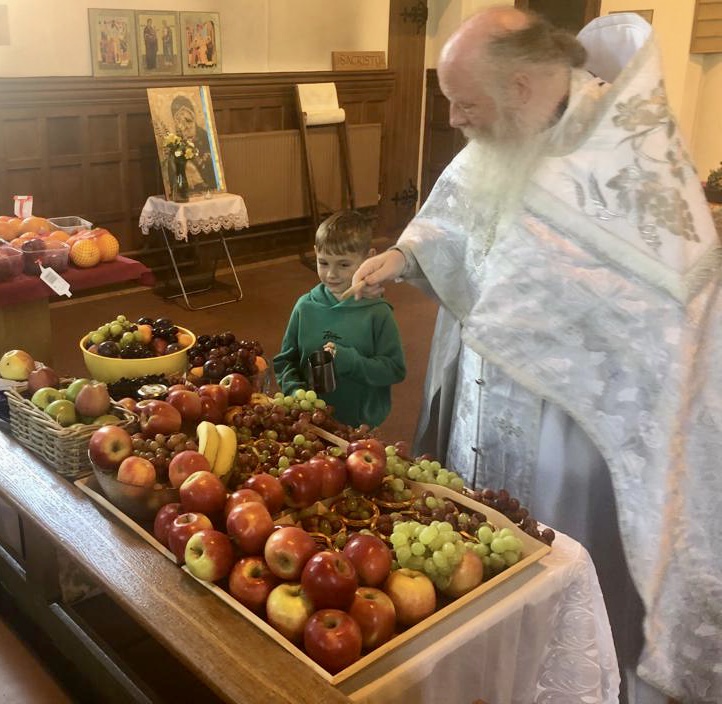
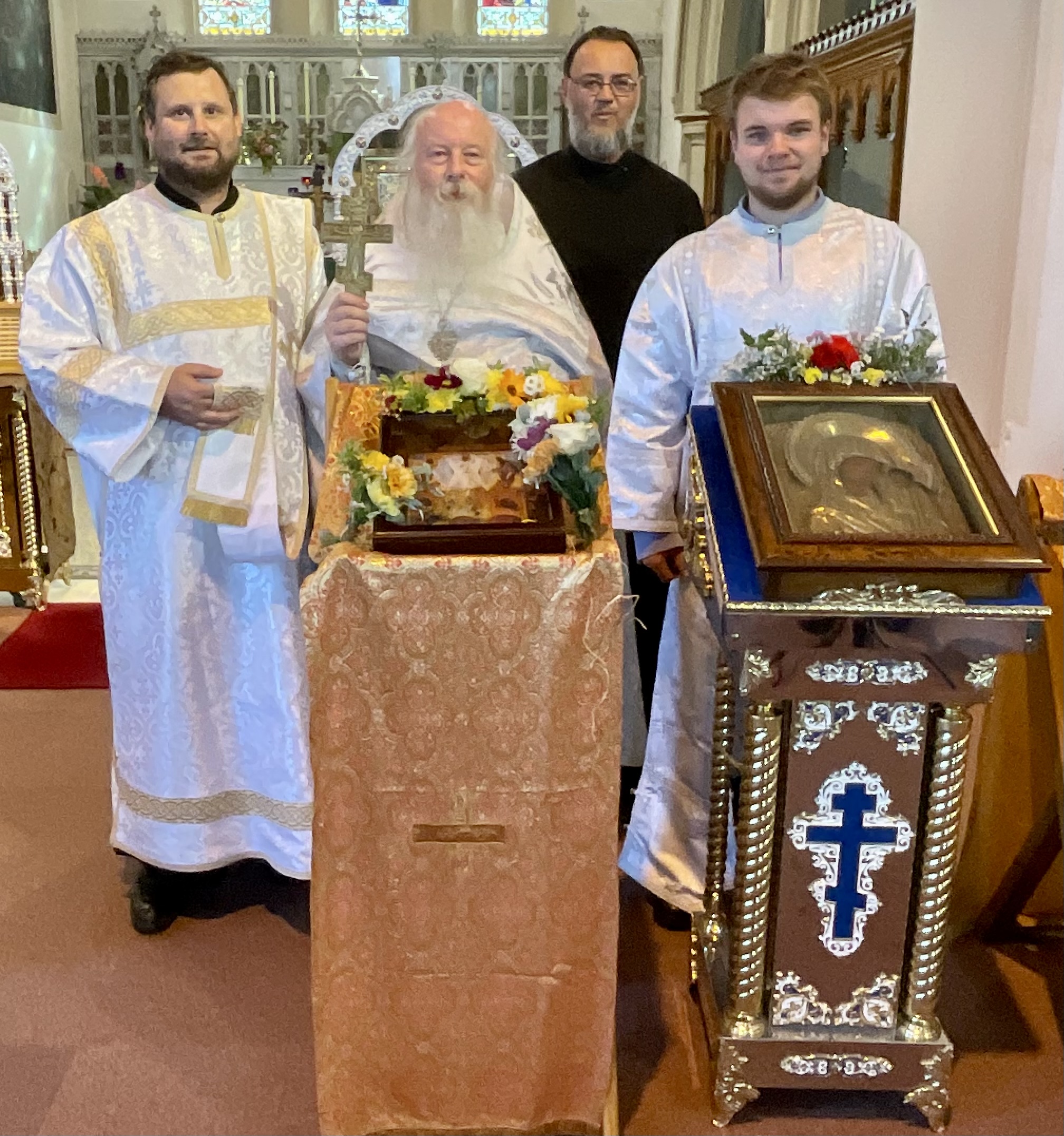 It has been wonderful to welcome our pilgrims back after their extremely busy and intense trip to the Holy Land, and there are many stories and experiences yet to be shared.
It has been wonderful to welcome our pilgrims back after their extremely busy and intense trip to the Holy Land, and there are many stories and experiences yet to be shared.

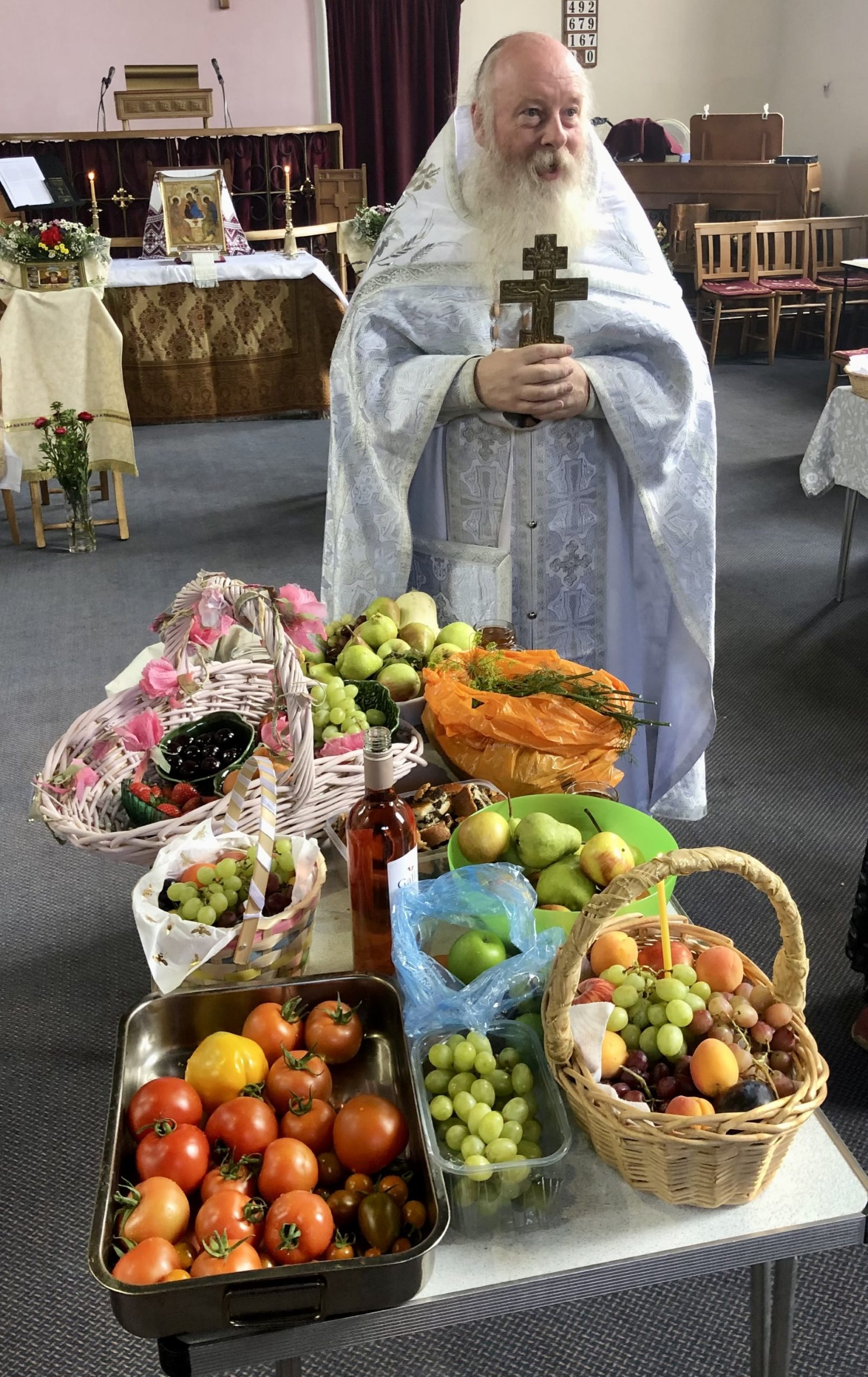
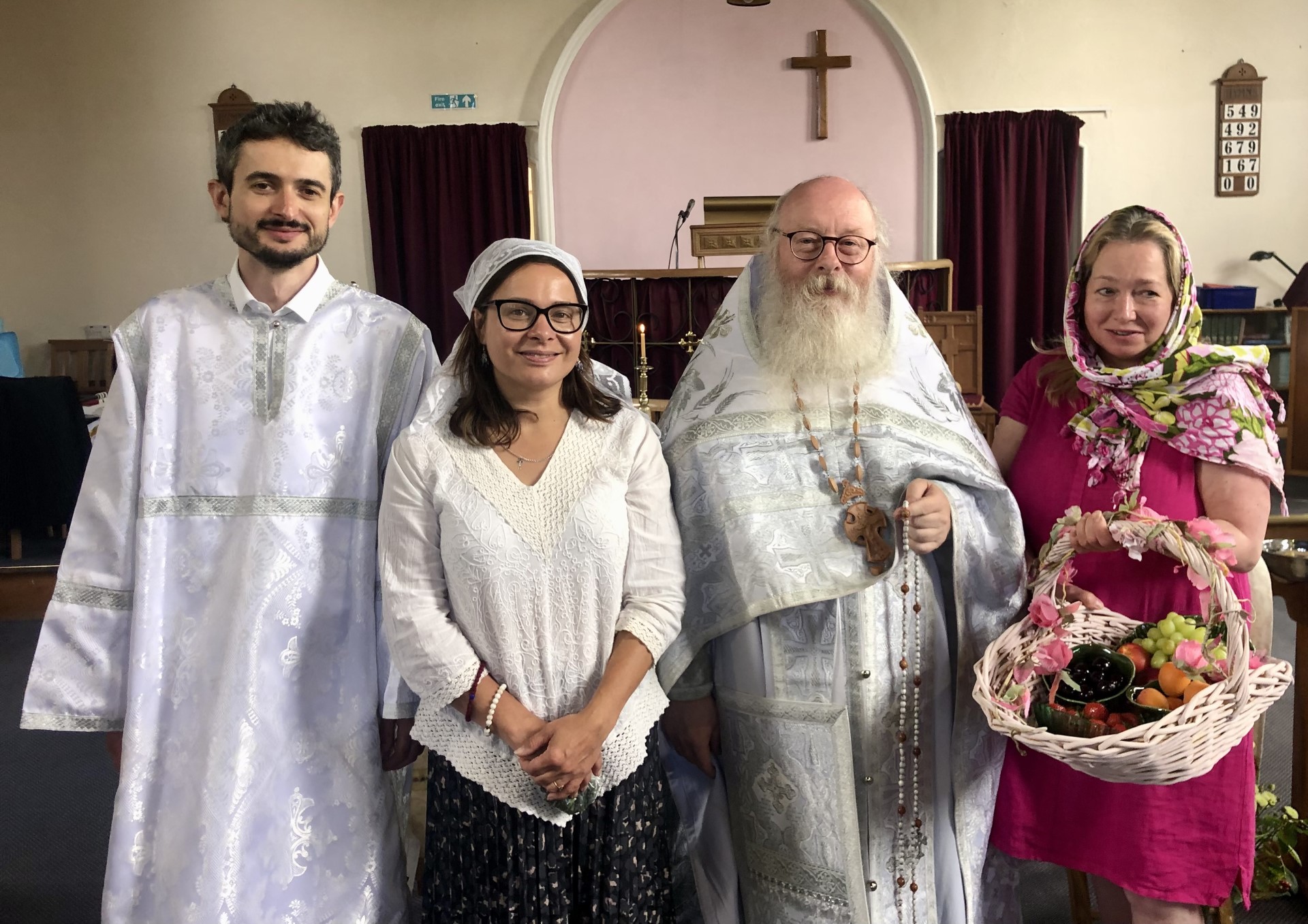
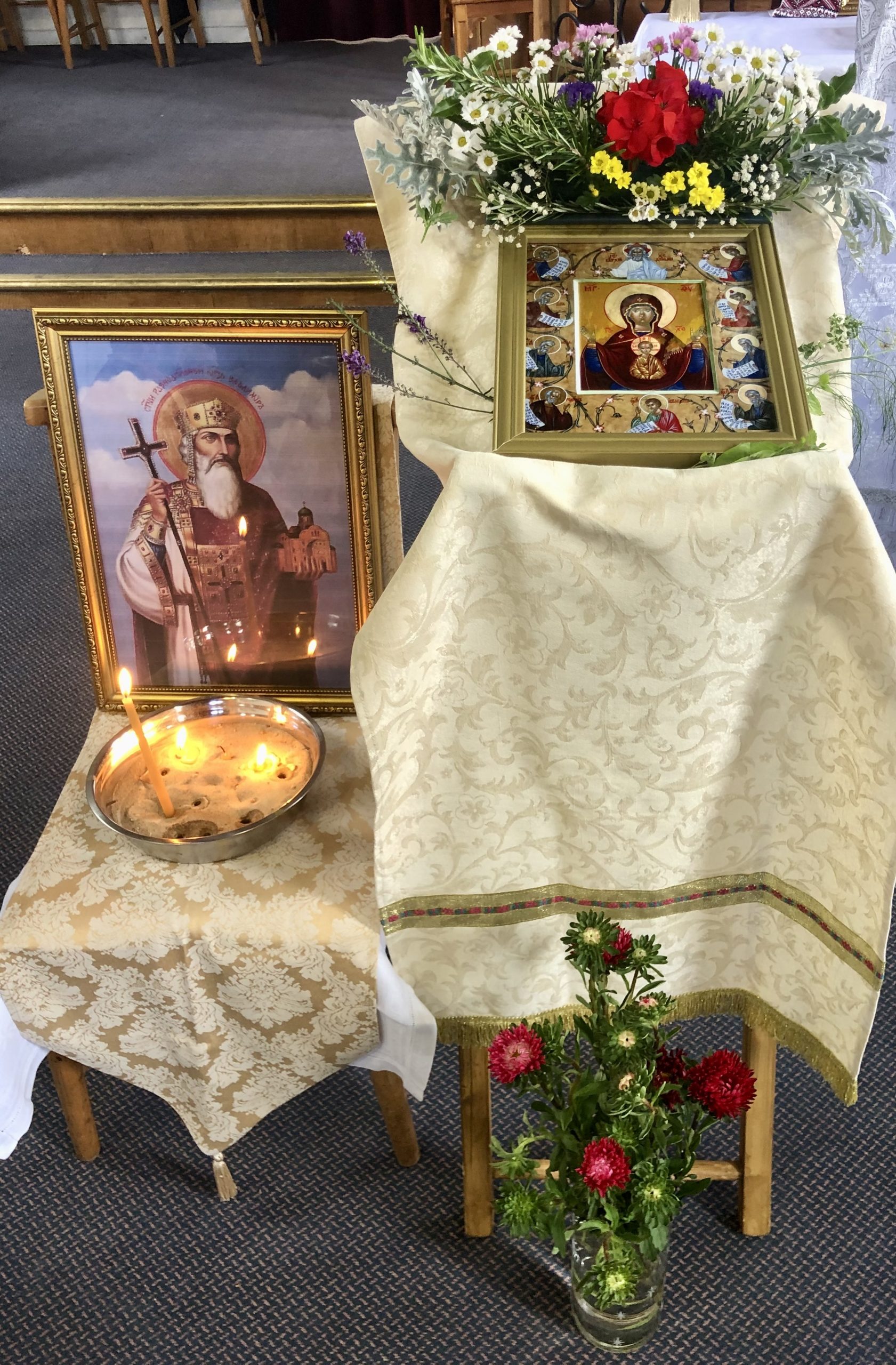
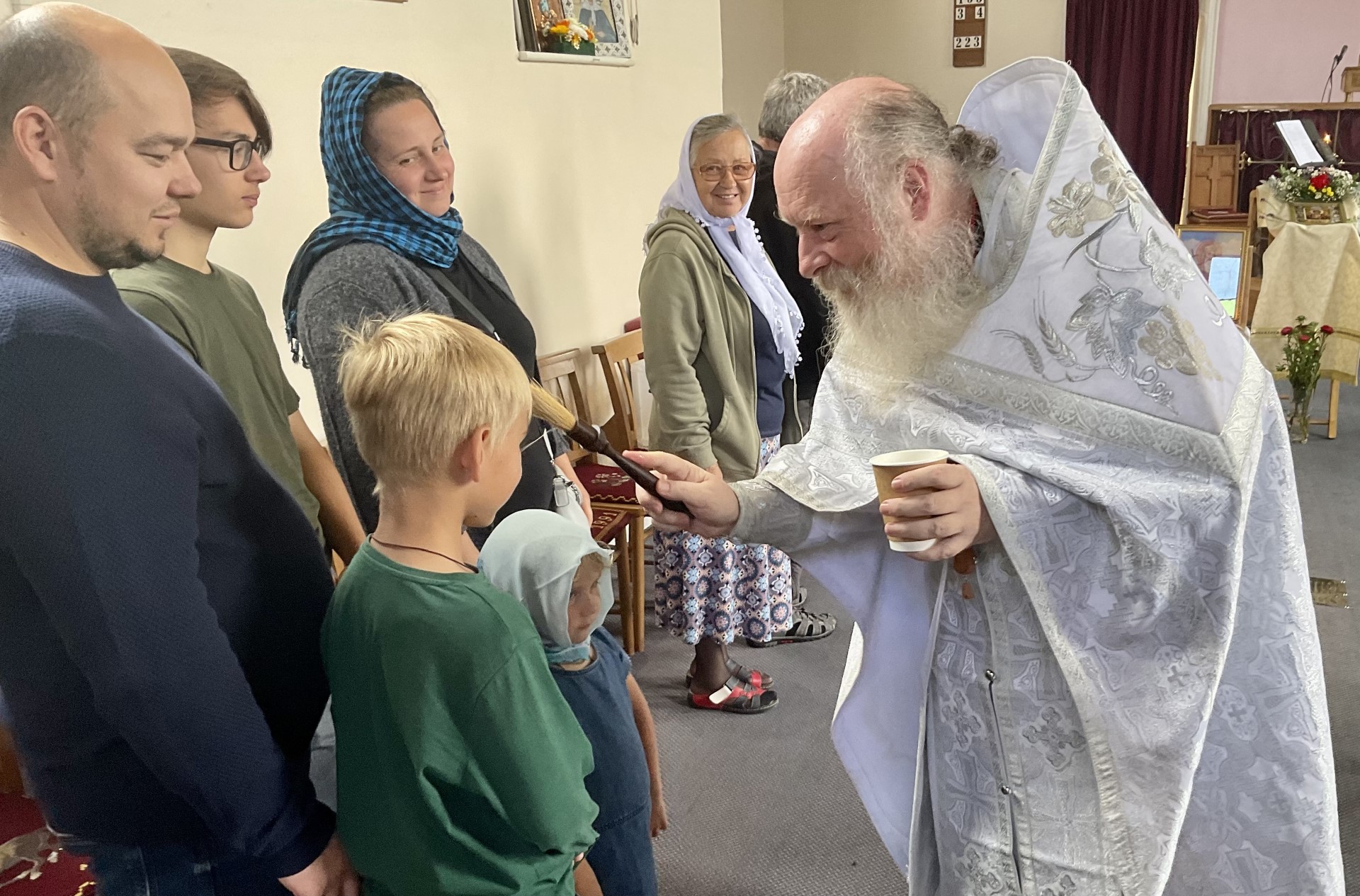
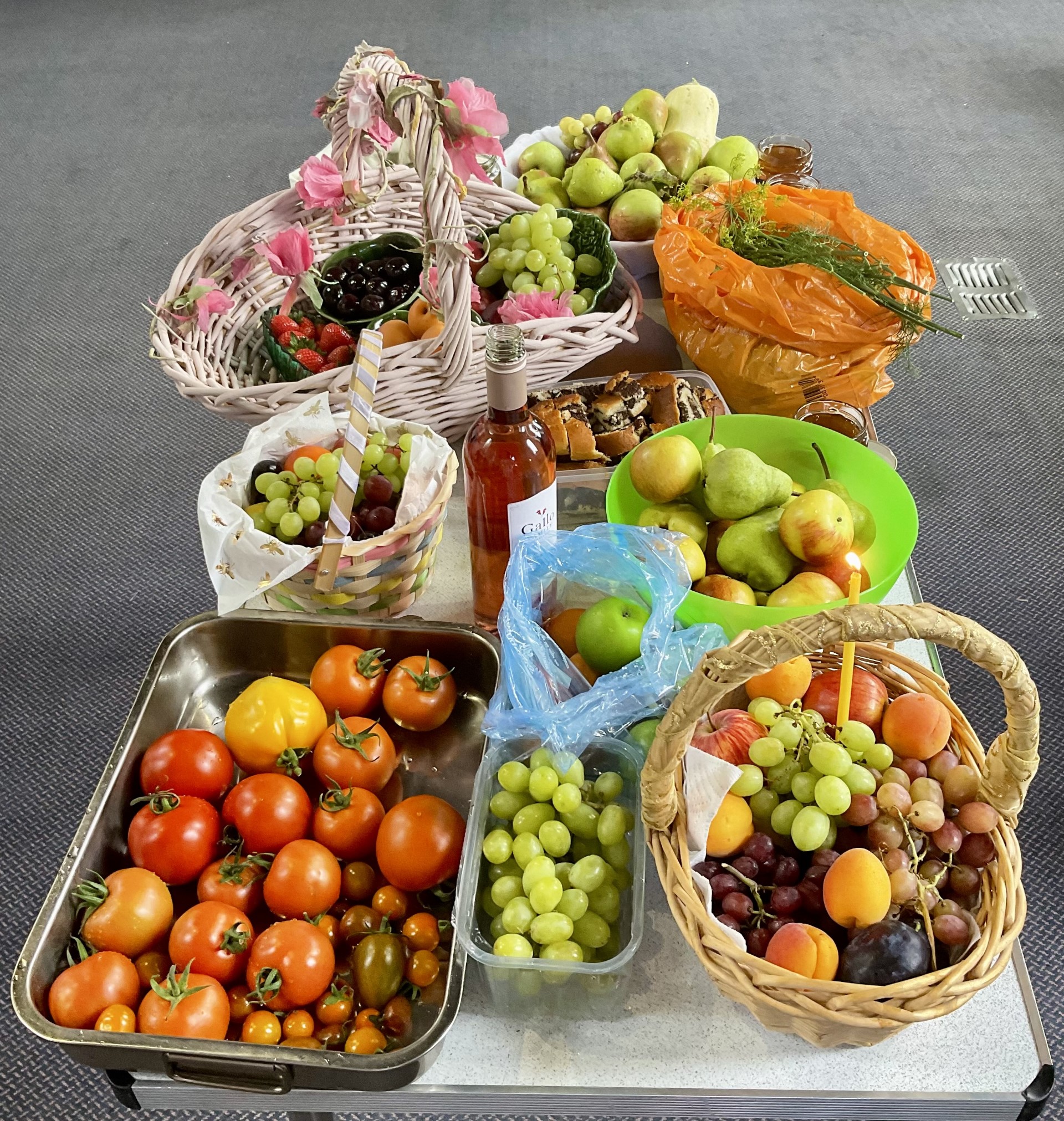

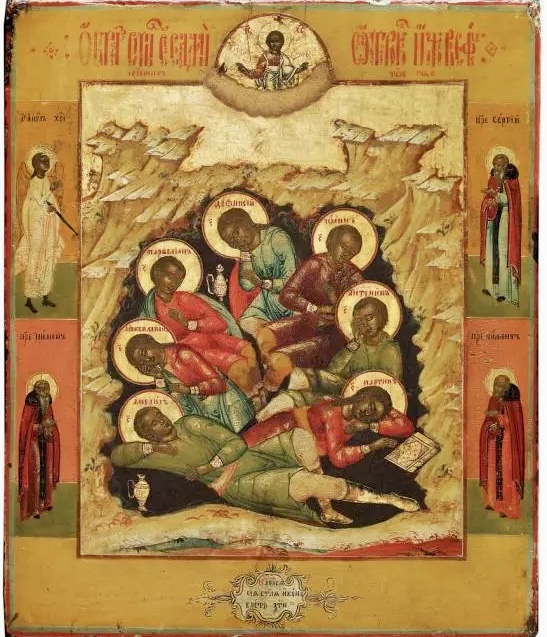
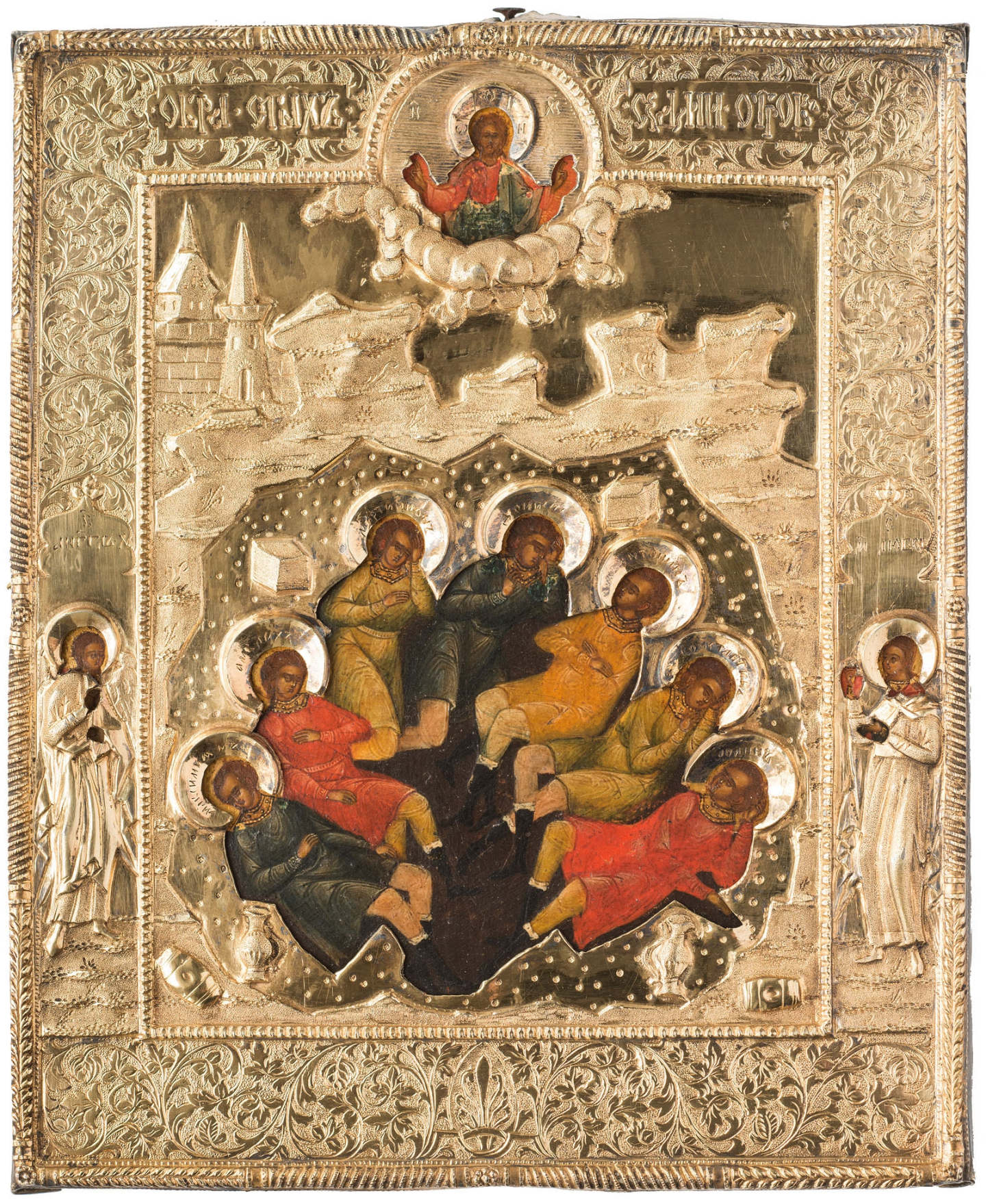

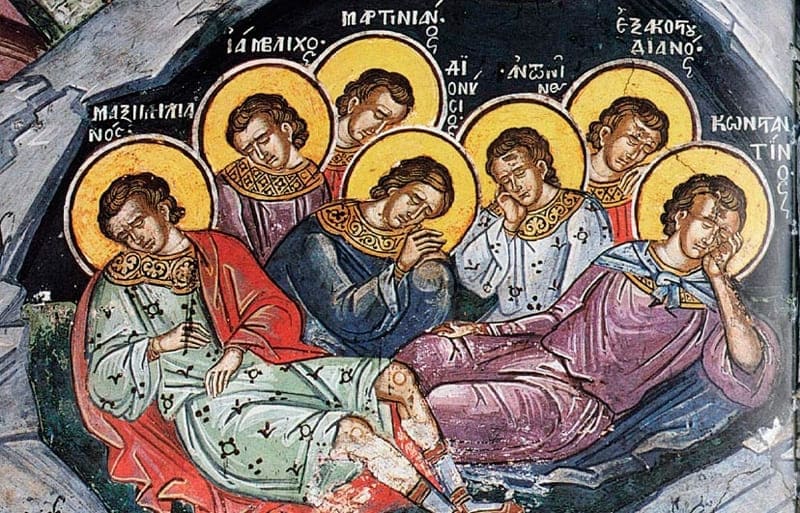
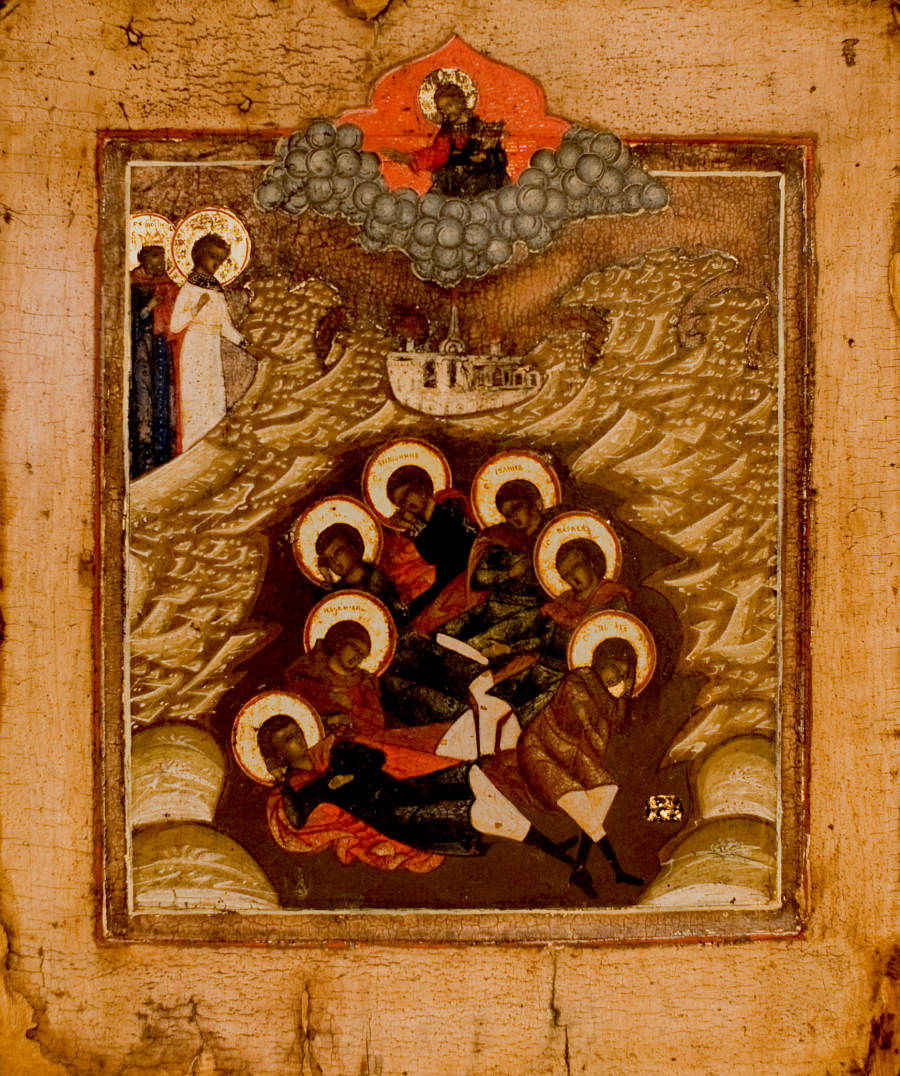
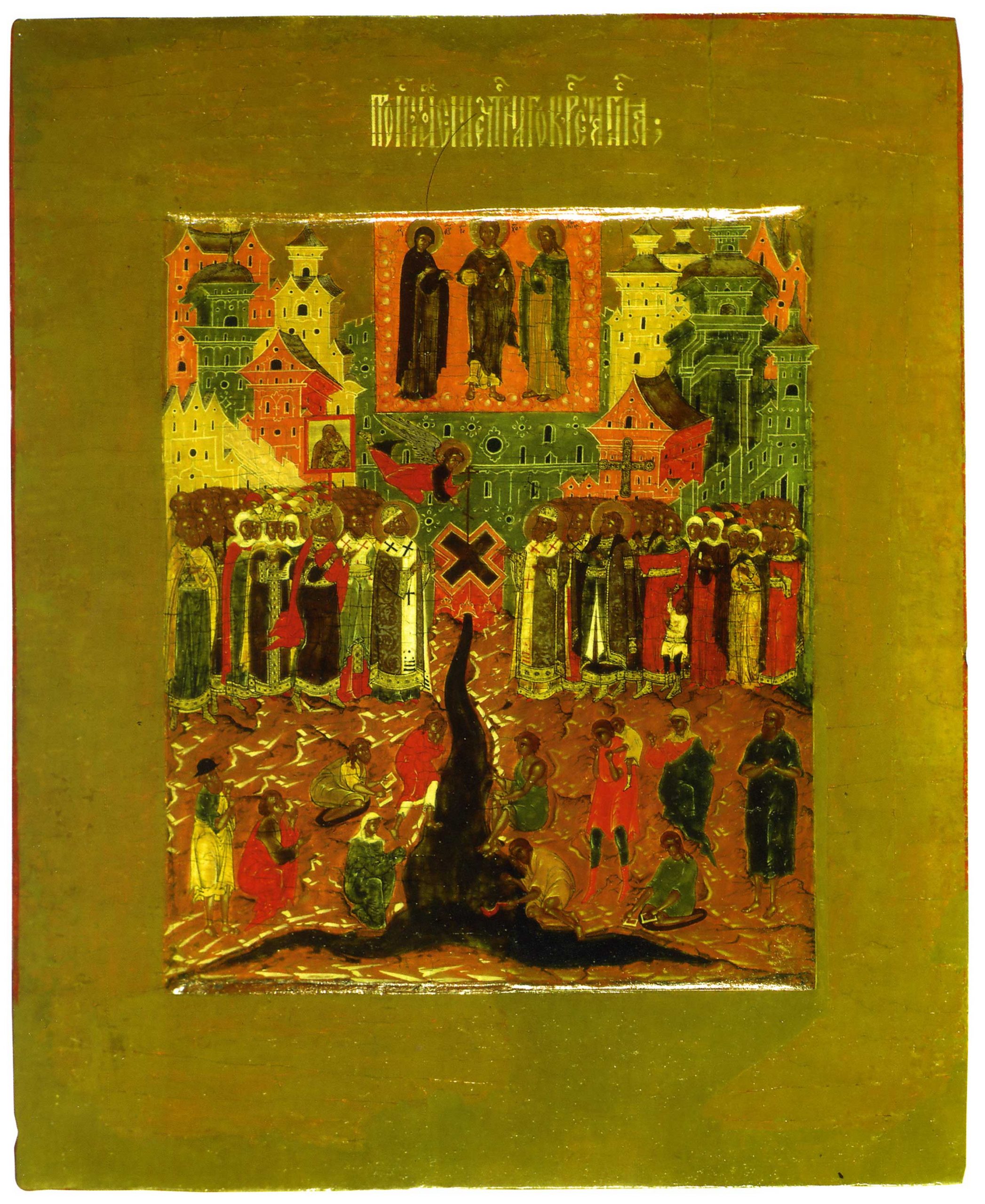 Dear brothers and sisters,
Dear brothers and sisters,